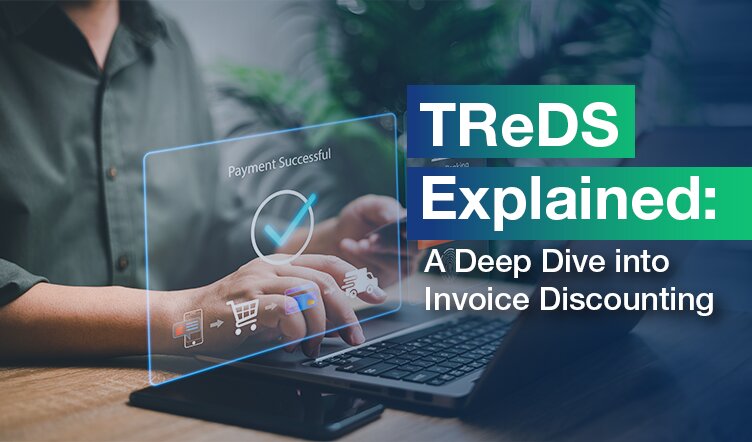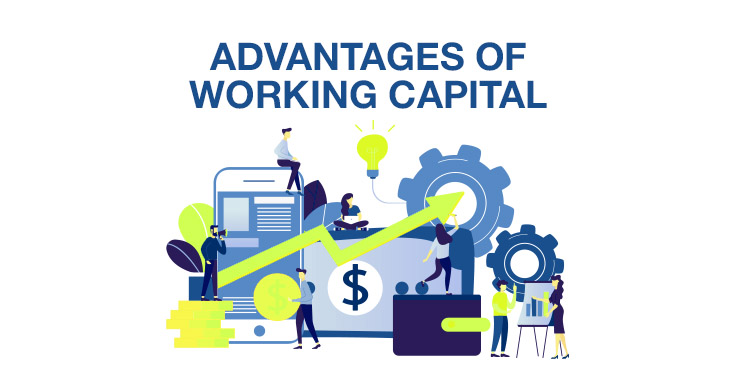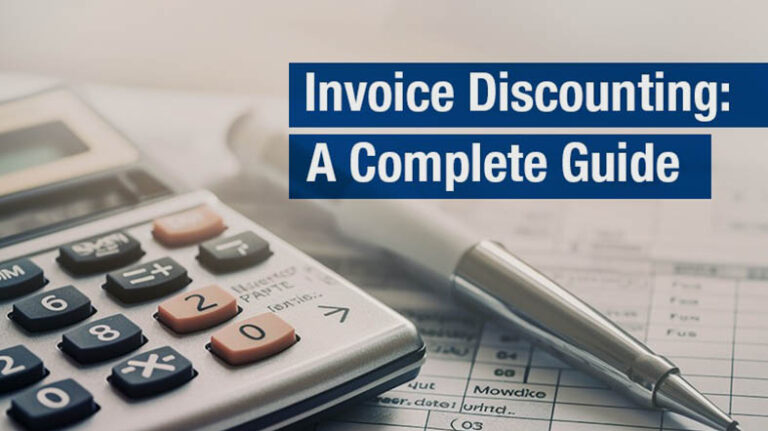Due to a lack of supply from traditional financing sources, invoice financing is becoming a more popular approach for MSMEs to enhance their cash flow & liquidity.
Importance of Liquidity for MSMEs
Liquidity is the process of turning your assets like inventory, account receivables, or some other investments like stocks into cash. The easier an asset is to sell for its actual value, especially when you’re under some pressure to liquidate it, its liquidity is lesser. There are numerous reasons why liquidity is an essential factor in your business. Let us see the three major ones:
In the Case of an Emergency
Keeping a tab on your liquid assets is essential because adversity can show up unannounced. It can also help you chalk the expenditure and govern the borrowings for your company by carefully keeping the liquidity of your company under a strict scanner. It’s hence imperative to be aware of your liquidity ratios and keep a close tab on the liquidity monitoring. And considering financing like invoice financing can lead to careful planning as well as stable growth along with significant profits.
To begin with, first assess the level of liquidity your company possesses and then take it up a notch. Next, consider all your assets and determine what sells the most quickly when your company is short on cash. Some of the assets you could use for the same are collecting your accounts receivables, selling your inventory off, and liquidation of stocks, to name a few. Invoice financing is a new concept that’s emerged in the recent past, but we will understand this deeply before that.
The Need for Financing and Credit
Small business owners often find themselves wondering about the liquidity ratios of their companies and how important or relevant it is to their business at any given time. Small businesses often require borrowing funds, and for that, the liquidity status of their companies is imperative.
This happens because the liquidity ratio directly reflects the strength and stability of your business to your investors and lenders. Hence, it reflects how your business is capacitated enough to weather every problematic storm. These days, small businesses and MSMEs are considering taking working capital finance from online lenders. They use it during rough times as a way to offer stopgaps.
You can calculate this liquidity ratio for your company very easily by simply dividing your assets by your current liabilities. A number desirable for the lenders of this ratio is somewhere between 1.5 and 3. These ways of financing, like invoice financing, can work wonders if you need loans and funds for your small business.
Your Clear Road-map for Making Intelligent Decisions
Keeping a regular tab on a business’ liquidity ratio can be a great way to make the best informed and sound decisions pertaining to your business. This can help skyrocket your company’s profits and growth if made use of effectively and efficiently. The trick here is not to have any idle cash lying here and there and make the most efficient use of the same.
Expansion of your business using excess liquidity does not mean going on an excessive spending spree. And expenditure on ventures that are not aligned with your company is unadvised. On the other hand, a liquidity crunch can be a very lucid indicator of the business being under economic stress. This can be very well used to identify how your business is working and find a fix for the same.
Another way this ratio can be super helpful is if you compare yours with that of your competitors to gauge where you stand. Again, this can help identify the potential economic and growth opportunities for your business in both the short as well as the long run.
How can Invoice Financing improve liquidity for MSMEs?
A very old saying: “”Revenue is vanity, profit is sanity, but cash is king.”” Cash is that indispensable component on which all the business operations depend. It can be a make or break a business’ growth as it determines a company’s liquidity. Invoice financing is an excellent tool for a business to boost its cash flow and liquidity.
Invoice Financing
IF is the process where businesses use to avail advances against their outstanding invoices. In turn, for this advance payment, the companies have to pay some percentage of the total amount, which serves as a fee to the lending party. This is an excellent financing option, especially for small businesses to keep up with their short-term liquidity needs.
In invoice financing, businesses use these advances from invoices as a loan. This method helps businesses and companies get the funds they need right away instead of waiting for the time until these bills are settled. As per a customer questionnaire report, these readily available funds via invoice financing are very convenient and even foster better growth and profits for businesses.
There are two types of invoice finance:
- Invoice factoring
- Invoice discounting
How can invoice financing help boost cash flows for businesses?
- It gives speedy and handy access to cash.
- Helps release the capital which is otherwise tied up in the capital
- It has straightforward terms of repayment
- Invoice financing involves no accumulation of debt
How does invoice financing work for an MSME?
As discussed above, invoice financing helps us get advance payments on outstanding invoices that have to be cashed sometime in the future. In a manner of operation, invoice factoring is like cash advances that are released on-demand at a price of a small fee. It generates a credit line against unpaid invoices without the need to sell the outstanding invoices.
Thus, it controls all your invoices without necessitating borrowing against your invoices. With control over cash flows, small businesses and MSME owners get a distinct advantage in running their businesses to manage their resources better. They can invest, innovate, take new market initiatives, and do more without any restrictions.
The Invoice Finance Process Adopted by MSMEs in India
The invoice financing method speeds up vendor payments without causing any disruptions in the balance sheet of any stakeholders. Moreover, TReDS gives this flexibility to the suppliers to choose the best factoring service companies on diverse parameters such as transparency, customer confidentiality, factoring rates & fees.
How can MSMEs start Invoice Financing in India?
M1xchange TReDS is a leading digital supply chain financing platform to sell the receivables to banks/NBFCs set up under the approval of the Reserve Bank of India (RBI) to facilitate the discounting of invoices and bills of exchange on a PAN India basis.
Companies registered under the Companies Act and having a turnover of more than INR 500 crores and all Central Public Sector Enterprises must onboard a TReDS platform, thus making TReDS registration mandatory for such companies. The Registrar of Companies (RoC) in every state has been nominated to be the competent authority to monitor the compliance of this notification.
How does invoice financing with M1xchange work for MSMEs?
Benefits of Invoice Financing through M1xchange
Invoice factoring is an alternative financing solution that helps businesses boost their cash flow by facilitating the collection of payments on invoices immediately. The factoring service company pays you at invoicing, and your clients usually pay them within 30-60 days according to their payment terms. Industies such as transportation, hospitality, IT, energy, temporary staffing, business services etc use factoring services. Here are some benefits of invoice factoring, especially compared to bank loans.
Fast approvals: In contrast to a traditional business loan, it’s quick and easy to apply for factoring. You can start receiving funds after getting approval within a week.
Approval is based on your Buyers’ creditworthiness. Rather than looking at your credit, a factoring company considers the credit risk of your clients. Startups, as well as more experienced businesses, are eligible for factoring.
Funding that can grow with your business: Your factoring line can grow with you as your business grows. Unlike banks, a factoring company won’t place caps on funding based on your business’s credit history.
No debt to repay: Unlike loans, with invoice factoring, you don’t take on any debt so you’ll never accumulate debt. Fee is deducted with each transaction no matter how many invoices you factor and thus, you accumulate zero debt.
Last modified: July 2, 2024















